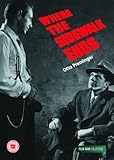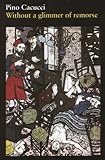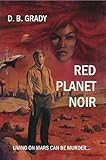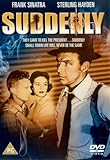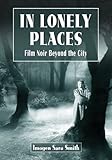Les Schtroumpfs noirs tome 1
Strangers On A Train (1951) [DVD]

From its cleverly choreographed opening sequence to its heart-stopping climax on a rampant carousel, this 1951 Hitchcock classic readily earns its reputation as one of the director’s finest examples of timeless cinematic suspense. It’s not just a ripping-good thriller but a film student’s delight and a perversely enjoyable battle of wits between tennis pro Guy (Farley Granger) and his mysterious, sycophantic admirer, Bruno (Robert Walker), who proposes a “criss-cross” scheme of traded murders. Bruno agrees to kill Guy’s unfaithful wife, in return for which Guy will (or so it seems) kill Bruno’s spiteful father. With an emphasis on narrative and visual strategy, Hitchcock controls the escalating tension with a master’s flair for cinematic design, and the plot (coscripted by Raymond Chandler) is so tightly constructed that you’ll be white-knuckled even after multiple viewings. Strangers on a Train remains one of Hitchcock’s crowning achievements and a suspenseful classic that never loses its capacity to thrill and delight. –Jeff Shannon
<- Read More Buy Now for [wpramaprice asin=”B000056BB2″] (Best Price)
David Lean Collection [DVD]
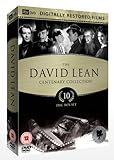
Lawrence of Arabia
In David Lean’s masterful “desert classic,” Peter O’Toole gives a star-making performance as T.E. Lawrence, the eccentric British officer who united the desert tribes of Arabia against the Turks during World War I. Lean orchestrates sweeping battle sequences and breathtaking action, but the film is really about the adventures and trials that transform Lawrence into a legendary man of the desert. Lean traces this transformation on a vast canvas of awesome physicality; no other movie has captured the expanse of the desert with such scope and grandeur. Equally important is the psychology of Lawrence, who remains an enigma even as we grasp his identification with the desert. Perhaps the greatest triumph of this landmark film is that Lean has conveyed the romance, danger, and allure of the desert with such physical and emotional power. It’s a film about a man who leads one life but is irresistibly drawn to another, where his greatness and mystery are allowed to flourish in equal measure. –Jeff Shannon
The Bridge on the River Kwai
Director David Lean’s masterful 1957 realization of Pierre Boulle’s novel remains a benchmark for war films, and a deeply absorbing movie by any standard–like most of Lean’s canon, The Bridge on the River Kwai achieves a richness in theme, narrative, and characterization that transcends genre. The story centers on a Japanese prison camp isolated deep in the jungles of Southeast Asia, where the remorseless Colonel Saito (Sessue Hayakawa) has been charged with building a vitally important railway bridge. His clash of wills with a British prisoner, the charismatic Colonel Nicholson (Alec Guinness), escalates into a duel of honor, Nicholson defying his captor’s demands to win concessions for his troops. How the two officers reach a compromise, and Nicholson becomes obsessed with building that bridge, provides the story’s thematic spine; the parallel movement of a team of commandos dispatched to stop the project, led by a British major (Jack Hawkins) and guided by an American escapee (William Holden), supplies the story’s suspense and forward momentum. Shot on location in Sri Lanka, Kwai moves with a careful, even deliberate pace that survivors of latter-day, high-concept blockbusters might find lulling–Lean doesn’t pander to attention deficit disorders with an explosion every 15 minutes. Instead, he guides us toward the intersection of the two plots, accruing remarkable character details through extraordinary performances. Hayakawa’s cruel camp commander is gradually revealed as a victim of his own sense of honor, Holden’s callow opportunist proves heroic without softening his nihilistic edge, and Guinness (who won a Best Actor Oscar, one of the production’s seven wins) disappears as only he can into Nicholson’s brittle, duty-driven, delusional psychosis. His final glimpse of self-knowledge remains an astonishing moment–story, character, and image coalescing with explosive impact. –Sam Sutherland
A Passage to India
This adaptation of E.M. Forster’s mysterious tale of British racism in colonial India turned out to be master director David Lean’s final film. Subtle and grand at the same time, Lean’s adaptation is faithful to the book, rendering its blend of the mystical and the all-too human with exquisite precision. Judy Davis plays a young British woman traveling in India with her fiancé’s mother. While visiting a tourist attraction, she has a frightening moment in a cave–one that she eventually spins from an instant of mental meltdown into a tale of a physical attack that ruins several lives. Lean captures Forster’s sense of awe at the kind of ageless wisdom and inexplicable phenomena to be encountered in India, as well as the British tendency to dismiss it all as savage, rather than simply different. –Marshall Fine
<- Read More Buy Now for [wpramaprice asin=”B001AHKH6E”] (Best Price)
Brighton Rock [DVD] [1947]

Hard to imagine now but long before Richard Attenborough became Lord Dickie, benevolent patriarch of British moviedom, he specialised in playing weaselly little thugs and punks. Brighton Rock, adapted from Graham Greene’s classic novel, offered him one of his best early roles as Pinkie, juvenile leader of a seedy gang of racetrack crooks in the Sussex seaside town. When it seems an innocent young waitress may know too much about one of their killings, Pinkie decides to keep her quiet by marrying her. But in Greene’s world of guilt-ridden Catholicism and inexorable doom, it was never going to be that easy.
Is the famous twist ending a cop-out? That depends just how much irony you read into it. But the Brighton atmosphere, all tawdry gaiety shot through with a crackling undercurrent of fear, is so vivid you can smell it. Made with a cool, dispassionate eye by the Boulting Brothers (before they turned jokey with the likes of I’m Alright Jack, for instance) and superbly shot by Harry Waxman, this is one of Britain’s few great contributions to the noir thriller cycle. Young Dickie, twitchy, vicious and terrified, is a revelation–and don’t miss William Hartnell, the original Dr Who, as his cynical sidekick. –Philip Kemp Rightly regarded as a genuine classic of British cinema, Brighton Rock has stood the test of time remarkably well to emerge as a tense, original thriller. Although there is much that is old-fashioned here (particularly the less than convincing East End accents), the tale of feuding gangster factions holds up favourably compared to modern-day efforts. In place of the now all-too-familiar violence is a quiet, brooding menace with much of the black and white film shot in the dark shadows of the underworld. Richard Attenborough holds it all together with his remarkable portrayal of young gangster Pinkie, exuding a threatening aura while often saying very little. Not surprisingly, given its base in Graham Greene’s famous novel, the film has an exceptionally strong storyline that is matched by the directions and performances. A good lesson in timeless film making.
On the DVD: Brighton Rock on disc sadly is a package with nothing to offer over the standard video release. The black and white footage shows little sign of remastering, nor does the soundtrack. There are no extras whatsoever—this is surely a massive oversight given the classic nature of the film itself. –Phil Udell
<- Read More Buy Now for [wpramaprice asin=”B000HEVTBS”] (Best Price)
Without a Glimmer of Remorse: The Remarkable Story of Sir Arthur Conan Doyle’s Chauffeur (Read & Noir)
Poisonville (World Noir)

- New
- Mint Condition
- Dispatch same day for order received before 12 noon
- Guaranteed packaging
- No quibbles returns
<- Read More Buy Now for [wpramaprice asin=”1933372915″] (Best Price)
